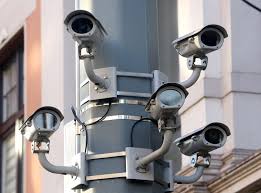The Growing Popularity of CCTV China Surveillance Systems that Has Triggered Unending Backlash
Currently, CCTV China surveillance systems remain the largest in the world. The country deploys a big percentage of all surveillance cameras used in various parts of the world. Surveillance has become common practice in many developed and developing countries, assisted by the advancement of AI-driven facial recognition technology. With the popularity of security systems today, you can find a CCTV camera shop in various local areas in China.
CCTV China Surveillance Systems Facilitating the Identification of Missing Kids and Drug Traffickers
In 2019, police in London made their inaugural facial recognition guided arrest through cross-referencing pedestrian photos in tourist attraction centers, using a directory of popular felons. Months earlier, New Delhi police conducted a facial recognition software trial in which they identified more than 2,000 missing children within four days.
In August 2020, a sought-after drug peddler was seized in Brazil when facial-recognition software identified him at a metro station. CCTV camera wholesale technology service is extensive in the US as well where it has facilitated the detention of an alleged rapist and suspected credit card thieves in Pennsylvania and Colorado respectively.

The Rising Adoption of Facial Recognition Cameras
Between 2010 and 2019, government acquisition orders for facial recognition devices and CCTV installation cost increased by more than 1,000% according to a ChinaFile report.
ChinaFile is an Asia Center on U.S.-China Relations Society’s publication. According to the report and CCTV dealers today, almost a third of Chinese countries bought surveillance-related devices in 2019 alone. ChinaFile functions as a nonprofit institution and collaborates with a wide range of China-focused researchers and analysts.
The institution published the State of Surveillance independent report after evaluating more than 70,000 openly available government acquisition orders of monitoring technologies between 2004 and 2020. The report provides an extensive analysis of China’s scale of surveillance programs.
The report exhibits China’s enduring push to be a worldwide surveillance superpower. China’s surveillance systems and facial recognition CCTV near where I live are today being used to execute harmless tasks like security assessments in airports. and monitoring tourists at attraction sites. These systems are also utilized for invasive reasons such as predictive policing and facilitating the adoption of repressive policies.
For instance, leaders in Xinjiang’s western province have established extensive surveillance systems to gather smartphone and facial recognition data to track and seize members of the minority Uighur community in the region. Further, Local-level retaliation to the advanced technologies is pushing legislation that could introduce advanced data privacy policies in the minority region.
Sharp Surveillance
Different CCTV news reports near me over the previous years have explained how Beijing utilizes surveillance systems in Xinjiang to restrain the Uighur community. However, the Chinese government’s efforts to initiate tech-based practices such as predictive policing and monitor citizens on a large scale seem to have been implemented across the nation.
For example, in Xiqiao, a city in Southern China where nearly 300,000 people dwell, government officials have installed over 1,200 video surveillance cameras and more than 250 facial recognition systems since 2006 according to a report by ChinaFile.
The report indicated that officials have hidden a big percentage of the public spaces with surveillance systems to ease the idea of controlling people.

Mass monitoring in low-profile territories and cities illustrates the introduction of China’s Sharp Eye surveillance project, a progressive attempt to furnish nearly all public places in China with video surveillance capabilities while collecting the data into a centralized platform.
According to the Chinese government, the project will enhance public security and safety. However, non-Chinese residents see it as a state control attempt. Surveillance is yet to be implemented across China. The country experiences notable administrative roadblocks in integrating its data sharing and surveillance efforts among central-level, provincial, and city authorities.
The Retaliation
Some Chinese natives have expressed their resentment towards the technological invasion. Just recently, in Hangzhou, Alibaba issued a blueprint law that would prohibit property managers from installing security cameras and setting up facial recognition systems in residential areas without authorization from the residents. The suggested legislation follows a previous facial recognition systems lawsuit filed in the city of Hangzhou.
In the lawsuit, Guo Bing, an Hangzhou Zhejiang University professor petitioned against a local wildlife facility after it attempted to impose mandatory facial scans on him even after he had bought an annual pass.
According to the professor the park breached his rights by its failure to reimburse his license after he disagreed with the new law. Speaking to the Chinese media, an official at the park said the policy was made to ensure the experience is convenient for consumers.
The park would later modify the policy to enable customers to utilize the fingerprint registration system. Even then, Guo is yet to drop his lawsuit.
Finally
While the Chinese government has developed one of the most robust mass surveillance and monitoring systems, its citizens seem prepared to object to some of the policies.
